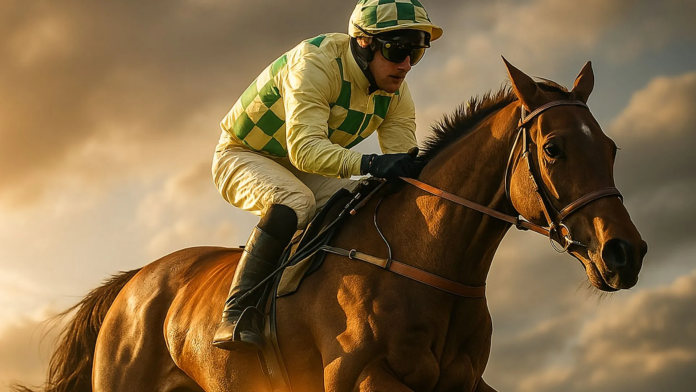The tragic death of Grand National runner Celebre d’Allen has once again thrown a harsh light on the brutal realities of horse racing and the Grand National in particular, a race which has long been synonymous with danger, death, and a systemic disregard for animal welfare, all masked beneath the glitter of spectacle and the hollow thrill of a wager.
Celebre d’Allen, a 13-year-old veteran of the track, collapsed shortly after completing the punishing circuit at Aintree. Despite the best efforts of veterinary teams, who initially reported signs of improvement, the horse’s condition worsened overnight, and he could not be saved. Trainers Philip Hobbs and Johnson White mourned the loss, calling him a “wonderful horse” who “will be missed greatly.”
But sorrow, however sincere, does not exonerate those complicit in the culture that led to this grim outcome.
Jockey Micheal Nolan, who rode Celebre d’Allen on the day, received a 10-day suspension after stewards ruled he had pushed his mount on when it was clear the horse had “no more to give” and was visibly losing ground. While this penalty acknowledges an immediate failure of duty, it barely scratches the surface of the deeper malaise infecting this so-called sport.
The British Horseracing Authority (BHA), desperate to defend its fragile credibility, insisted that Celebre d’Allen had passed all pre-race veterinary checks, including a review of his racing history and a physical examination. Yet these routine protocols, however rigorous they claim to be, failed to prevent his death, just as they have failed countless others. When horses continue to perish under the strain of events like the Grand National, we must surely conclude that these so-called “safeguards” are woefully inadequate.
Animal rights groups have rightly voiced their outrage. Ben Newman, spokesperson for Animal Rising, made no effort to soften the truth: “The blame for his death lies not with any individual but with the ‘sport’ of horse racing itself. Again and again, we see horses pushed far beyond their limits, to the point of injury, collapse, and death.”
Nina Copleston-Hawkens of Animal Aid was equally blunt: “To allow a horse of this age to be ridden to death in the most gruelling race in the country is disgraceful — and the blame for his end lies fairly and squarely with the British Horseracing Authority.”
Yet the sickness runs even deeper still. It is not confined to the jockeys, the trainers, or the authorities who sanction these races. It festers also among the thousands who fuel this grotesque spectacle from the sidelines; the spectators and, crucially, the gamblers. Those who place bets on the Grand National and other such races must reckon with their complicity. Every flutter of a betting slip, every pound staked on a favourite or an outsider, contributes to the machinery of suffering that drives horses like Celebre d’Allen to an early grave.
Gambling is the lifeblood of this industry. Without it, the Grand National would not draw the vast crowds it does. Without it, there would be no incentive to push horses through gruelling, hazardous courses in pursuit of fleeting glory and bloated purses. The tragedy at Aintree is not an isolated failure; it is the inevitable consequence of a blood sport propped up by public indulgence.
Even World Horse Welfare, an organisation traditionally moderate in its stance, acknowledged the deep concerns raised by Celebre d’Allen’s death. Chief executive Roly Owers expressed sorrow and called for lessons to be learnt from this “very sad outcome”, but the truth is plain: the lessons are long overdue and willfully ignored.
The BHA has promised a full investigation, including a post-mortem examination of Celebre d’Allen. But how many more investigations must be launched, and how many more horses must perish, before this cruelty is confronted at its root?
As long as horses are treated as disposable commodities, as long as crowds roar for blood disguised as sport, and as long as gamblers continue to fund this deadly charade, the cycle of suffering will endure. Behind every cheer, every winning ticket, and every lost bet lies the silent suffering of the voiceless.
Celebre d’Allen deserved better. All racehorses do. And until society finds the courage to reject this barbarism, his death, and the deaths of so many others, will weigh heavily on us all.







